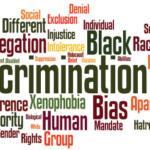Relationship Dynamics
I am Sarah’s primary rheumatology provider, and I share racial and cultural concordance with her family. However, not all providers on the “trusted” list do. One need not be Black to know the ubiquitous cultural law mentioned above. Greater emphasis on the quality of patient-provider communication and relationships may be an effective way to remove barriers to healthcare access.
Providers can consciously behave in ways that improve relationship dynamics when faced with justified apprehension, by using the knowledge that honor, respect and authenticity are paramount. It is also important to be mindful of the verbal and non-verbal language cues that convey when one isn’t regarded as inherently equal in human value to all others.
Paradigm Shift
We in America have been summoned to account for centuries of relational harm to minoritized peoples. Members of the rheumatology professional community are not excused from this national reckoning and must actively participate.21 We can no longer ignore or give passive attention to the striking lack of diversity in the rheumatology workforce or the under-representation of racial and ethnic minorities in clinical trials and disease registries, despite the increased prevalence of diseases like lupus in this population.22
Black physicians comprise approximately 4% of the total physician workforce, 1.3% of pediatric rheumatology providers and 0.8% of adult providers.23,24 These numbers provide indisputable evidence that the field of rheumatology’s relationship with minoritized peoples is severely flawed.
Although provider-patient concordance has been shown to improve patient satisfaction and quality of care, I believe that racial concordance is a proxy for the degree to which patients and their unique circumstances are seen, heard and respected as fundamentally human.25 We all are human; therefore, each person of sound mind has the capacity empathize, to evaluate prejudiced thought patterns and then act with empathy to remove the barriers of racism for the sake of delivering more excellent care.
Advocates focus intensively on sweeping policy change at organizational and government levels to address inequities in the healthcare system. Policy reform is an essential component for promoting health equity; however, since the inception of the American democracy, grand policy changes have not addressed the root cause of weak relationships between racially or ethnically discordant parties.
The solution for eradicating racism—and other -isms that drive many systemic inequities—are not fixed by policy changes.The resolution of America’s most challenging issue demands a paradigm shift that requires everyone to advance in inner work.



